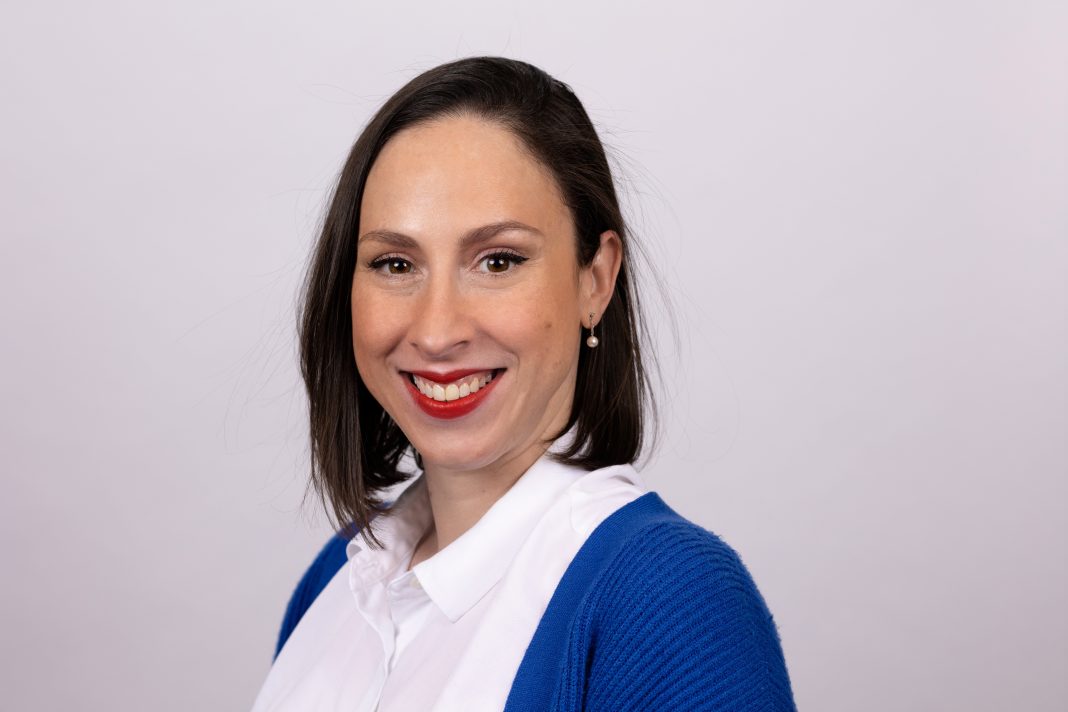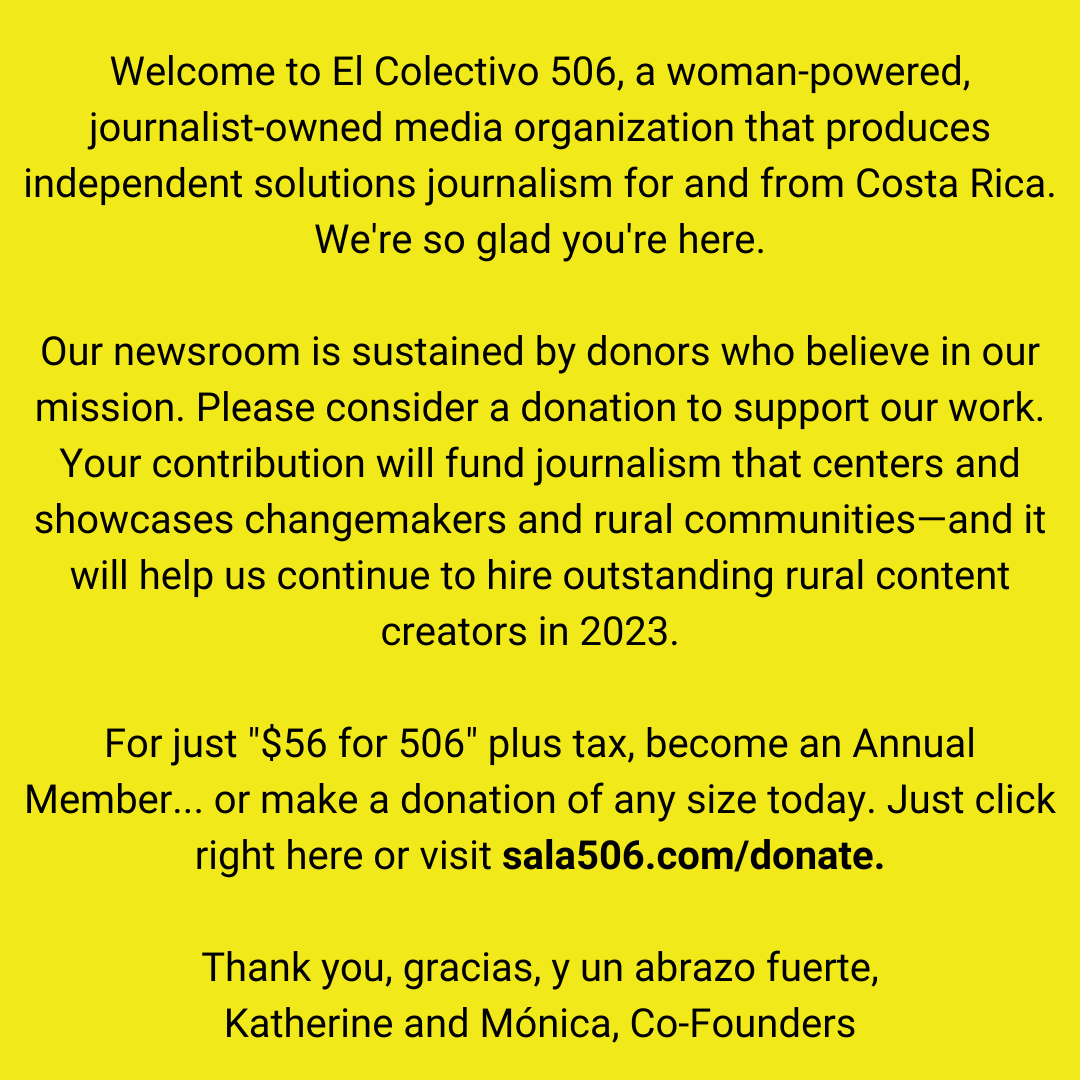Since the launch of El Colectivo 506, Marie Garnier—a Costa Rican university professor based in the Netherlands—has been one of our most passionate readers. We chatted with Marie about her perspective on Costa Rica from abroad, what she would like to see and read about in El Colectivo 506, and more.
Excerpts follow.
Where did your interest in rural Costa Rica originate?
Limón. The Caribbean. The first time we went to the Caribbean, that feeling that it is my country, but it is another country at the same time—its contrasts, its bittersweet. On the one hand it’s the Caribbean, it’s a wonderful land, those colors and those flavors. You also see the difficulties.
What is it like to be Costa Rican in another country? What do people in Europe ask you?
It’s nice when you say “Costa Rica” and people react in a certain way. I tell them yes, it’s beautiful, and it’s also got all these little issues that we have to keep trying to fix. There’s always that part of the question which is, why are you here? Why did you leave? It starts with wanting to continue studying, have different experiences, and get to know other places and other cultures. It is a luxury and a huge privilege. It changes your perspective.
You have that complex part of having a piece of yourself here, and another there. You’re not fully in either place.
What things do you appreciate most in Costa Rica now that you are abroad?
Food. It’s not just the ingredients that you like. Chancho con lo que se cría—and this little pig was raised with rice, beans and meat. But it’s also that for us [in Costa Rica], food is part of who we are. It’s part of our identity. It’s the flavors you grew up with, it’s the smells of your home. We gather in the kitchen, hang out for lunch, sit down and enjoy the food. At house parties people always end up in the kitchen.
Here, food is energy. It’s nutrition. But most of my colleagues have lunch behind the computer.
Why have you been so passionate about the advancement of El Colectivo 506?
I think journalism is absolutely essential. It fulfills a lot of very important roles. But in the context of capitalist societies, with business models like the ones we’ve had, journalism has its hands tied. [The media] has to sell a product paid for by ads, and I have serious doubts that the best journalism can be produced under those models. There is a basic conflict of interest. And you have fewer and fewer journalists, writing more and more things. There is no time to do long and complicated investigations—or you have to create clickbait.
Solutions journalism seems very interesting to me; in El Colectivo 506 you mix it with an emphasis on rural life; and then you have the perspective of three women, three mothers. I think it’s thinking about stories from a fundamentally different point. There is a story in particular that Mónica [Quesada] wrote that moved me greatly [about infant and maternal mortality]… we need to tell those stories, those personal and painful stories, those complex stories, those stories that make us uncomfortable.
They are those topics that I think we should touch on mor. Those experiences of women, the experiences of people who live a different reality from people with marginal experiences. People who talk about a country that is not the country seen by the tourist who stays in a beach hotel, or… seen from a private school.
What would you like to hear and read from Costa Rica in 2023?
The stories that surprise me the most are those that I didn’t know were there, told from the perspective of the people. It’s something I haven’t seen in any other media organization. They’re very focused on elites and governments and celebrities.
It seems to me that there is a huge need to hear these [different] voices, for these voices to reach the people who are making decisions. We love to say that the government is of the people and by the people and for the people, but I don’t [believe] it’s working that way.
And where would you like to see solutions journalism focused in 2023?
This whole story of the pandemic has caught my attention: the unprecedented polarization. It is something that I had not seen in Costa Rica. For me, Costa Rica was a place where the fact that all kids get vaccinated, and it is mandatory, had never been a problem. Suddenly we have this pandemic and you say, “What is happening?” It’s become a debate, and there’s no way to talk about it.
You think, “How do I show this person how wrong he or she is? How can you be such an idiot?” And the other person is thinking the exact same thing about you.
I don’t know how to close the gap there, but I think journalism could—and especially solutions journalism.









